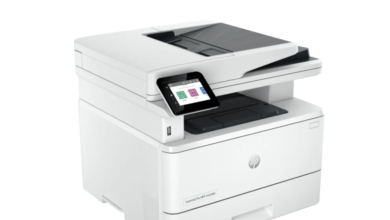Handling Payroll Taxes as a Startup: A Simple Guide

Payroll taxes are one of the more taxing and unclear aspects of operating a startup. With registering with the tax agencies, making the proper calculations on the withholding, and making the deposits within a certain time frame, it can easily get out of hand, particularly given that you have product development and marketing to take care of, along with funding.
However, learning the mechanisms of payroll taxes and remaining under the source may prevent you from further sanctions, inspections, and even a lawsuit. The article streamlines the fundamental elements of management of payroll taxes for start-ups. Hiring your first employee and building a growing team need similar pieces of information.
What Are Payroll Taxes?
Payroll taxes are the taxes that the employer shall deduct at the end of payments to their employees and remit to the government.
- Federal Income Tax Withholding – Depending on IRS tax brackets and the employee’s W-4.
- Social Security Tax –Employers and employees contribute, each at 6.2 percent (12.4 percent altogether).
- Medicare Tax – 1.45 percent each paid by the employee and employer (2.9 percent combined).
- Federal Unemployment Tax (FUTA) – Paid only by the employer.
- State and Local Taxes –Depending on the state and city of the employee.
The taxes are used to finance vital initiatives such as Social Security, Medicare, unemployment insurance, and government activities.
1. Register with the Right Tax Agencies
You will have to register your business before you pay employees legally:
- Get an EIN (Employer Identification Number), which is a type of Social Security number for your business.
- Register with your State’s Department of Revenue for income tax withholding.
- Set up an account with your State Unemployment Insurance agency (SUI) for unemployment tax reporting.
In addition, local payroll taxes may need to be registered in some states (e.g., in New York City or San Francisco). You must do these steps before your initial payroll run.
2. Classify Employees Correctly
One of the most common IRS audit triggers is worker misclassification. You must distinguish between:
- Employees – Subject to payroll tax withholding. You must report their earnings using W-2 forms.
- Independent Contractors – Not subject to withholding. You report payments using 1099-NEC forms.
Misclassifying employees as contractors can result in back taxes, interest, and penalties. Use IRS Form SS-8 or consult an accountant if you’re unsure.
3. Understand Payroll Schedules and Due Dates
Dates that you need to pay payroll taxes can vary with your deposit schedule:
- Monthly or semi-weekly deposits are based on the size of your payroll.
- Quarterly Form 941 filings report income tax, Social Security and Medicare withholding is filed using quarterly Form 941.
- Tax on FUTA is covered by the annual Form 940.
- W-2 and W-3 have to be submitted to the SSA before January 31 every year.
Late fees or, in some cases, interest might be incurred once the deadline is not met, not even by a day, so make a schedule and follow it.
4. Calculate Withholdings and Employer Contributions
By each paycheck, you will have to:
- Hold the right level of the federal and state income tax depending on the W-4 forms of the employees.
- Deduct social security and medicare taxes from the payroll of the employee.
- Contribute your part to the employer part of Social Security and Medicare, and FUTA.
Payroll calculations have a considerable chance of error, and this is why many startup payroll software allow automation of this activity. Such tools normally take care of all of that, including the computation of withholdings, preparation of tax forms, and electronic submission of the returns. The selection of appropriate software may save your time and make you compliant.
5. Keep Records and Stay Audit-Ready
You need to have a record of employment tax that you maintain a minimum of four years as required by the IRS. These include:
- Employee W-4s
- Pay stubs and payroll registers
- The receipts of the income tax payments
- Duplicates of tax returns (Forms 941, 940, W-2, and so on)
Digital recordkeeping is fine, but make sure your files are organized and backed up in case of an audit.
6. Stay Updated on Changing Tax Laws
Tax is not constant, and something that was tax compliant last year with the law might not be so this year. As an example, the state periodically adjusts unemployment tax rates or develops new local payroll taxes. This is more likely to be professional in case you are working remotely, and you have employees spread across different states, and you have to keep them updated. Think about IRS newsletter subscriptions and the state taxing agency newsletter, or use a payroll expert.
7. Consider Outsourcing Payroll or Hiring a Professional
When you feel like complying with the payroll taxes is too much to handle, then outsource. You can:
- Take the help of full-service payroll providers, those who take care of taxes in full.
- Find a CPA or an accountant who knows start-up requirements.
- Apply in-home tools, but seek the opinion of a professional once every three months or once a year.
It guarantees the fact that you not only remain compliant but are also able to optimize your cash flow and avoid fines.





